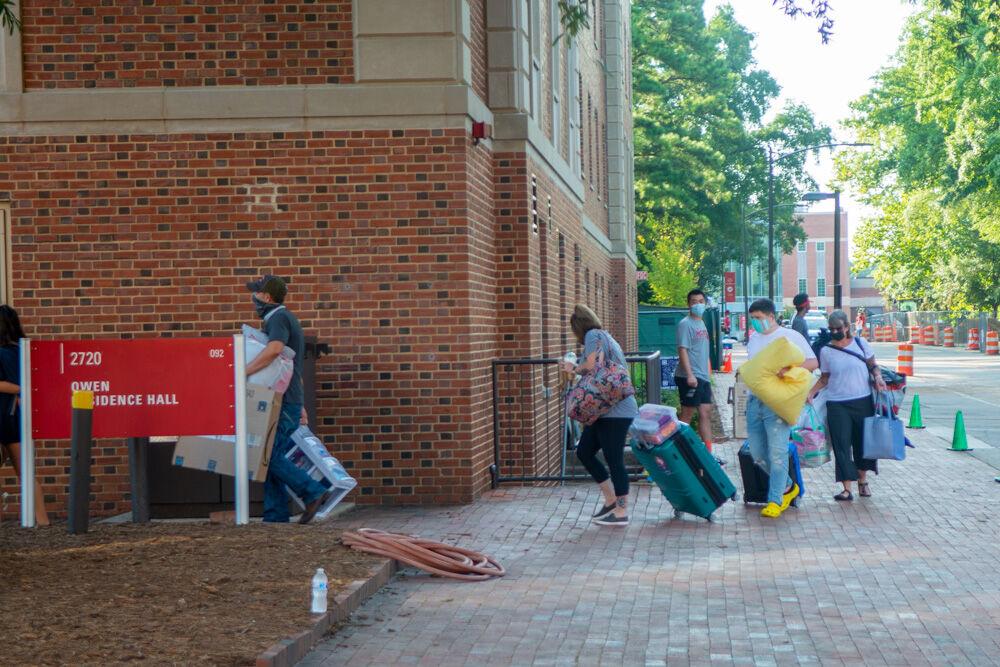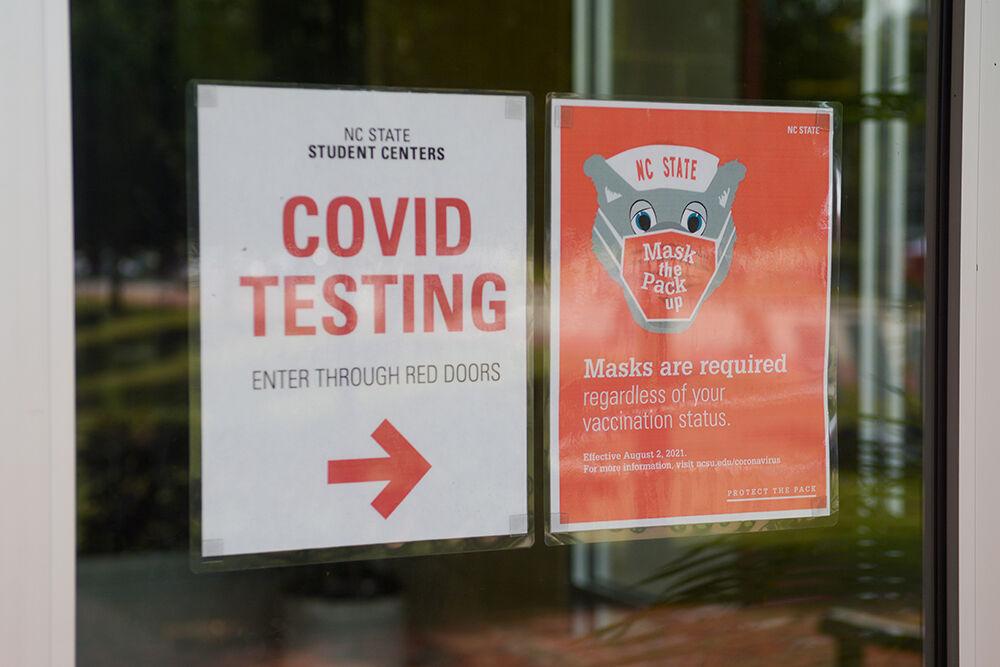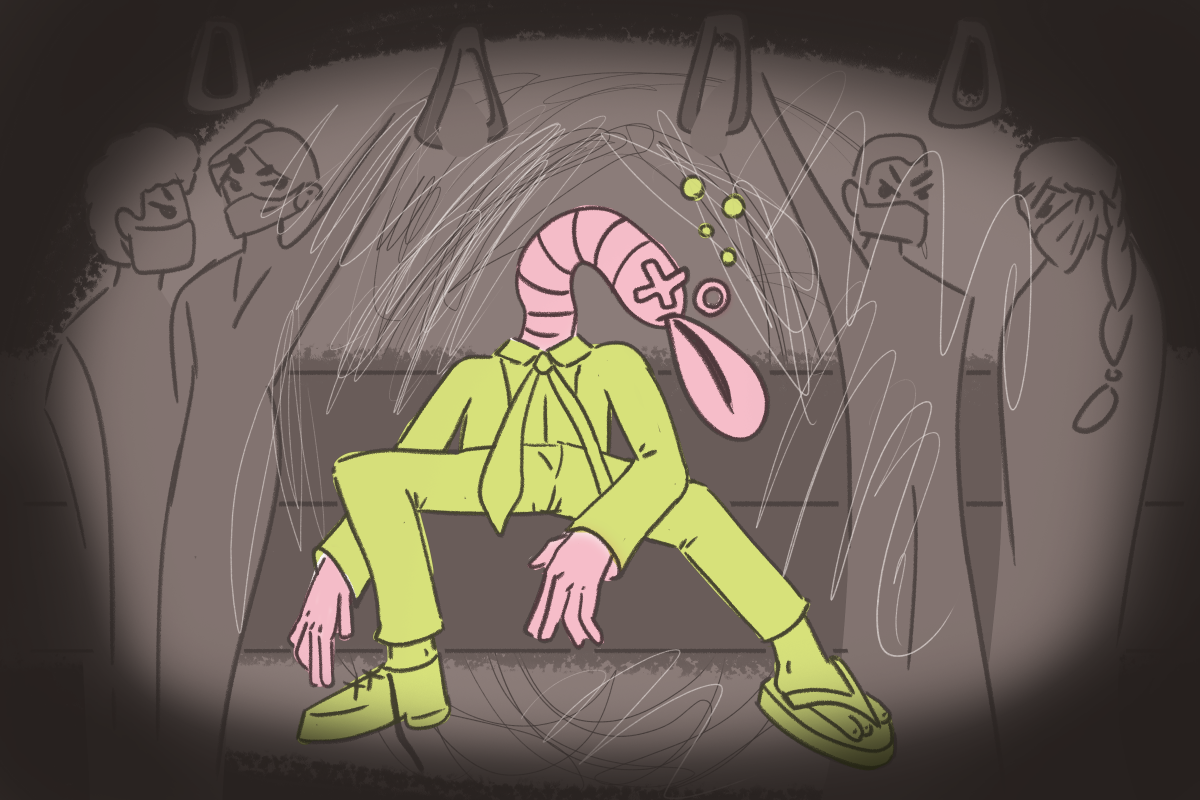For the first time since September, when NC State sent students home for the remainder of the fall semester due to high COVID-19 transmission rates, students are back on campus this spring. Students moved in for the spring semester between Jan. 16 and Jan. 18.
The move-in process for the spring was similar to the Fall 2020 semester, according to Executive Director of University Housing Donna McGalliard. Now, there are many new policies for on-campus residences to limit the spread of COVID-19.
“We kept a lot of things the same because we heard great feedback from fall,” McGalliard said. “Some of those things were limiting the number of people that could be on an elevator at one time. We kept lots of hand sanitizing stations all over our buildings, mostly in lobbies, near entrances and exits and things like that.”
Surveillance testing is one of the biggest new protocols to be applied for the spring semester. All students living on campus and designated faculty and staff must be tested weekly, according to the Protect the Pack website.
Many students living on campus agreed that weekly surveillance testing will be beneficial to stopping the spread of COVID-19. According to Declan Crowe, a first-year studying meteorology, weekly testing is a change that makes students feel more comfortable on campus.
“It was actually one of the biggest things that convinced me to come back was the fact that they now have that testing policy,” Crowe said. “Last semester, obviously, we didn’t have it, and we had the issues, so I think, hopefully, as we’ve seen across the country with that, testing policies will hopefully help this semester.”
Hope DeGenova, a first-year studying human biology, said that she feels safer and less paranoid thanks to the weekly surveillance testing.
“I think it’s better that everyone had to get tested before they came back to campus because hopefully we’ll last a little bit longer this time,” DeGenova said.
Another shift from the fall came in the form of dorm occupancy. Instead of hosting two students per double in a residence hall, every student will get their own room in an effort to mitigate the spread of COVID-19.
“From fall to spring, the largest difference was that we reduced occupancy in the buildings,” McGalliard said. “The strategy that we are employing for spring is that every student gets a single room, so there’s not going to be a traditional-style double room.”
According to McGalliard, the “anticipated occupancy” for the spring semester is 3,962 students, nearly half of the 7,150 students who were living on campus in mid-August of 2020. These figures do not include Greek Village residents, which includes approximately 500 students.
“When you think about having single-room occupancy on campus, we actually can’t hold much more than that,” McGalliard said. “We could hold probably another thousand [students] or so, but it’s okay. People are making decisions about what makes them feel comfortable, and we completely understand.”
Jordan Isley, a first-year studying art and design, said that moving in among fewer on-campus students felt safer.
“There are not a lot of people, especially since we don’t have roommates anymore — I felt a lot safer about being there,” Isley said. “But also, since I’m very cautious, I took extra precautions so I’m as safe as I want to be.”
McGalliard also expressed hope for the new semester, citing University Housing’s partnership with Student Health Services as an important component in reopening campus for the spring.
“What we’ve done is we’ve continued to be in close conversation with our partners at Student Health Services,” McGalliard said. “They are really kind of our lifeline to the Department of Health and [Human] Services and other state and local agencies that help us plan for how we were going to change things from an occupancy perspective.”
DeGenova said the move back to campus was largely to restore some normalcy in the college experience.
“I feel like it’s more of a mental aspect — rather than doing it from home, it’s better to get away and at least have some semblance of the college experience than just sitting in your room all day, doing work,” DeGenova said.













